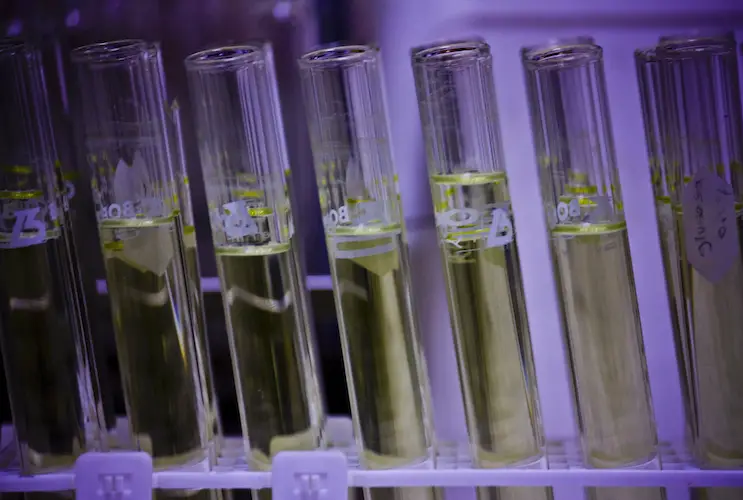In these experiments of basic laboratory operations, a series of procedures and manipulations are described in order to familiarize the student with the routine work of an organic chemistry laboratory.

Image taken by Angel Sánchez Angel Sanchez
Basic laboratory operations
They can be defined as a series of basic procedures that are usually performed in a laboratory. Therefore, the student will need to acquire them in order to be able to perform with dexterity in the organic chemistry laboratory.
The main basic lab operation in an organic chemistry laboratory are listed below:
- Fastening and anchoring
- Weighing of solids and liquids
- Volume measuring for liquids or solutions
- Techniques used in chemical reactions
- Filtration
- Centrifugation
- Recrystallization of organic compounds
- Liquid-liquid extraction (with and without chemical reaction)
- Drying of liquids
- Solid-liquid extraction (Soxhlet)
- Distillation:
- Solvent removal with rotary evaporator
- Pressure reactors and hydrogenators
- Inert atmosphere reactions
- Thin layer chromatography (TLC)
- Column chromatography (CC)
List of basic-lab-operation experiments
In addition, some relatively simple practices of basic laboratory operations have been chosen. They serve, in fact, as a pretext for the development of these basic lab operations. In this way, the student will be able to acquire the necessary skills and abilities to be able to perform autonomously an experiment in the laboratory.
It has been tried to be of lesser to greater complexity, both in terms of the theoretical bases, as well as the assemblies that allow its development.
A selection of basic lab operations experiments are described below:
- How to measure the density of a solid and a liquid
- Determination of the concentration of vitamin C in fruit juice
- Recrystallization of organic compounds in water and organic solvents
- Separation of the components of a mixture
- Simple distillation: obtaining ethanol from wine
- Fractional distillation of an acetone/water mixture
- Separation of pigments from spinach leaves (spinach chromatography)
- Isolation of caffeine from soluble coffee
- Preparation of ethyl acetate
- Obtaining cloves and cinnamon oils (rotovap)
- Obtaining sunflower oil from seeds (Soxhlet)
Video on Common Lab Operations
References
- Isac-García, J.; Dobado, J. A.; Calvo-Flores, F. G.; and Martínez-García, H. (2015). Experimental Organic Chemistry Laboratory Manual. Elsevier Science & Technology. ISBN: 978-0-12-803893-2